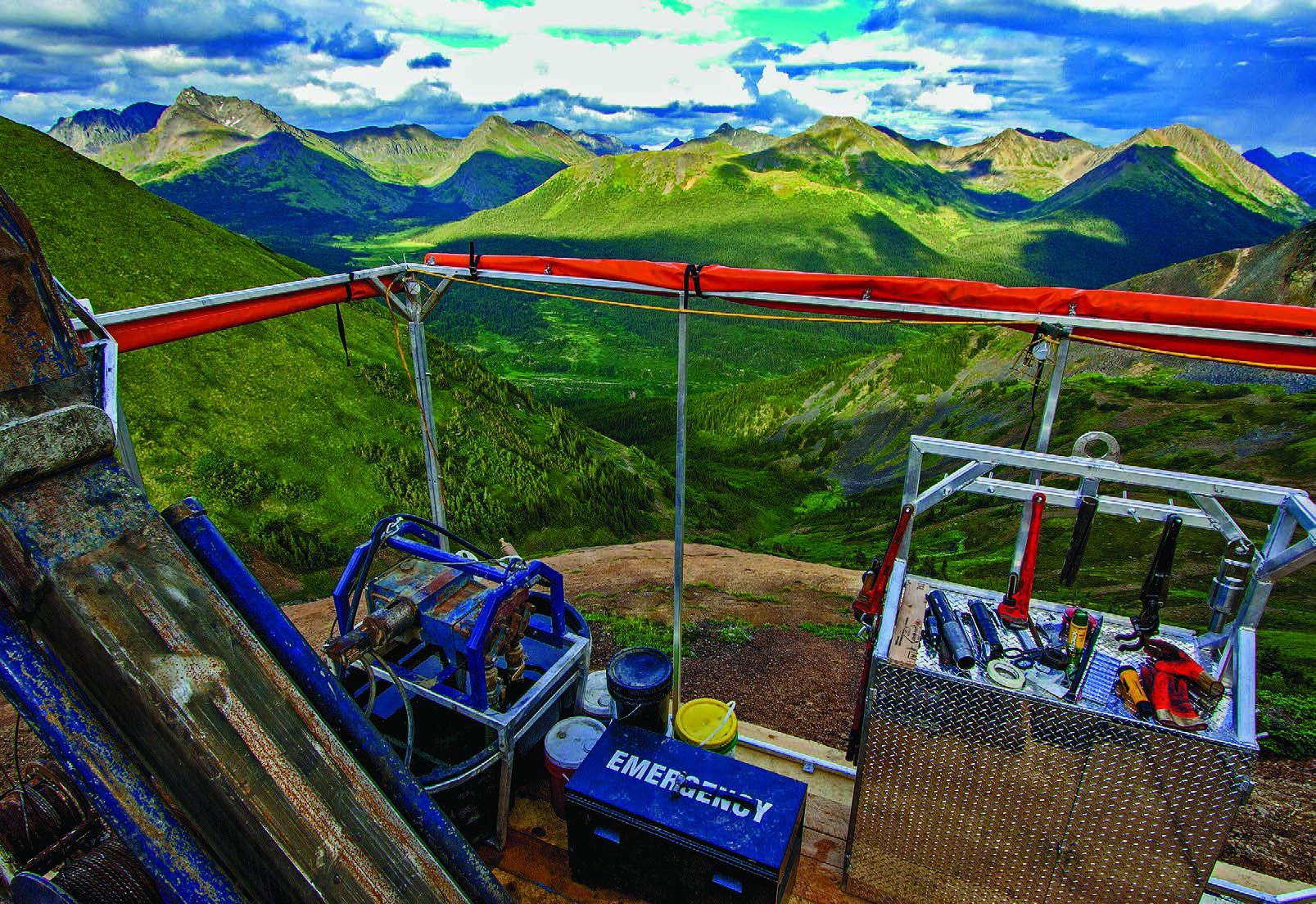
The Association for Mineral Exploration named its 2018 safety award winners January 30 during the Roundup 2019 conference.
The David Barr Award (presented by AME) went to Paycore Drilling for its professionalism and care following an incident in mineral exploration in rescuing a helicopter pilot from a crash.
The Safe Day Everyday Gold Award (presented by AME and PDAC) was awarded to Major Drilling International Inc. for achieving 1,001,838 hours without a lost-time injury in 2017 and to George Downing Estate Drilling Ltd. for achieving 157,712 hours without a reported injury in 2017.
The Safe Day Everyday Gold Award was presented at the AME Environment, Health & Safety Awards Breakfast at Roundup on the morning of January 30. The David Barr Award was presented at the gala on the evening of the same day.
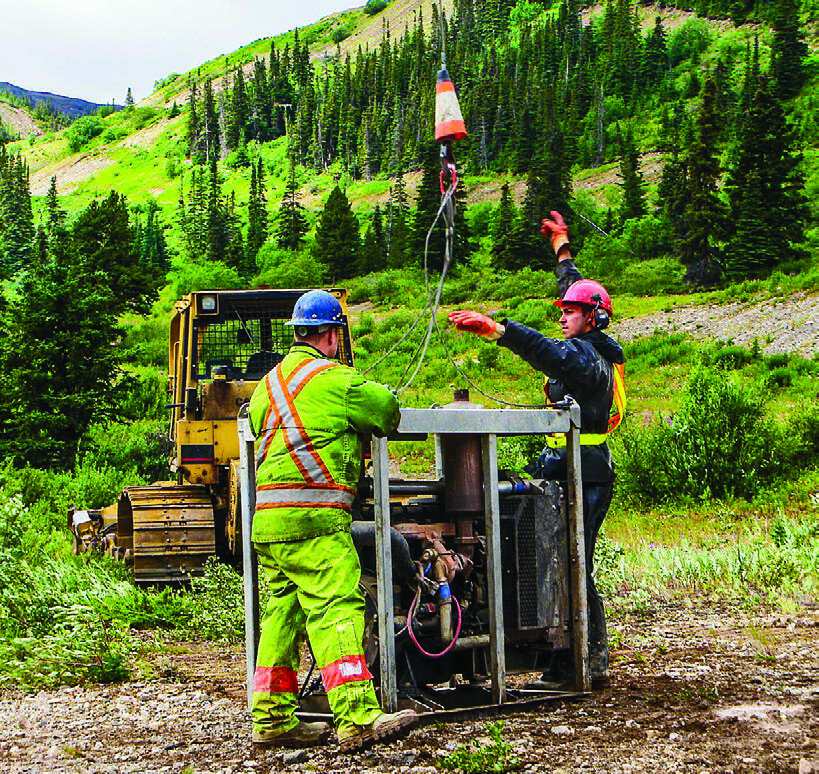
“This is the first time that AME has had two drilling companies honoured with the Safe Day Everyday Gold Award,” says Jonathan Buchanan, AME director, Regulatory and Technical Policy.
Bill Mercer, co-chair of the PDAC Health and Safety Committee, says the biggest safety risks in exploration result from the activity taking place in an open and uncontrolled environment, which often lacks the controls and procedures found at a producing mine. “Exploration is project-based and of much shorter duration, so the work is less routine,” says Mercer.
And because exploration often takes place in remote sites, emergency response planning needs to ensure that safety systems are in place because response to an accident will be slower than in a more accessible location. “So you have a huge incentive to stop accidents happening in the first place,” Mercer says.
Brennan Dyck, general manager of Paycore Drilling, says winning the David Barr came as a great surprise. The helicopter pilot rescue took place while the company was drilling in the Cariboo region.
“I watched the aircraft during its descent,” says Dyck. “It was clear the impact was very hard and there would be severe injuries. We were very fortunate the crash site was close to camp.”
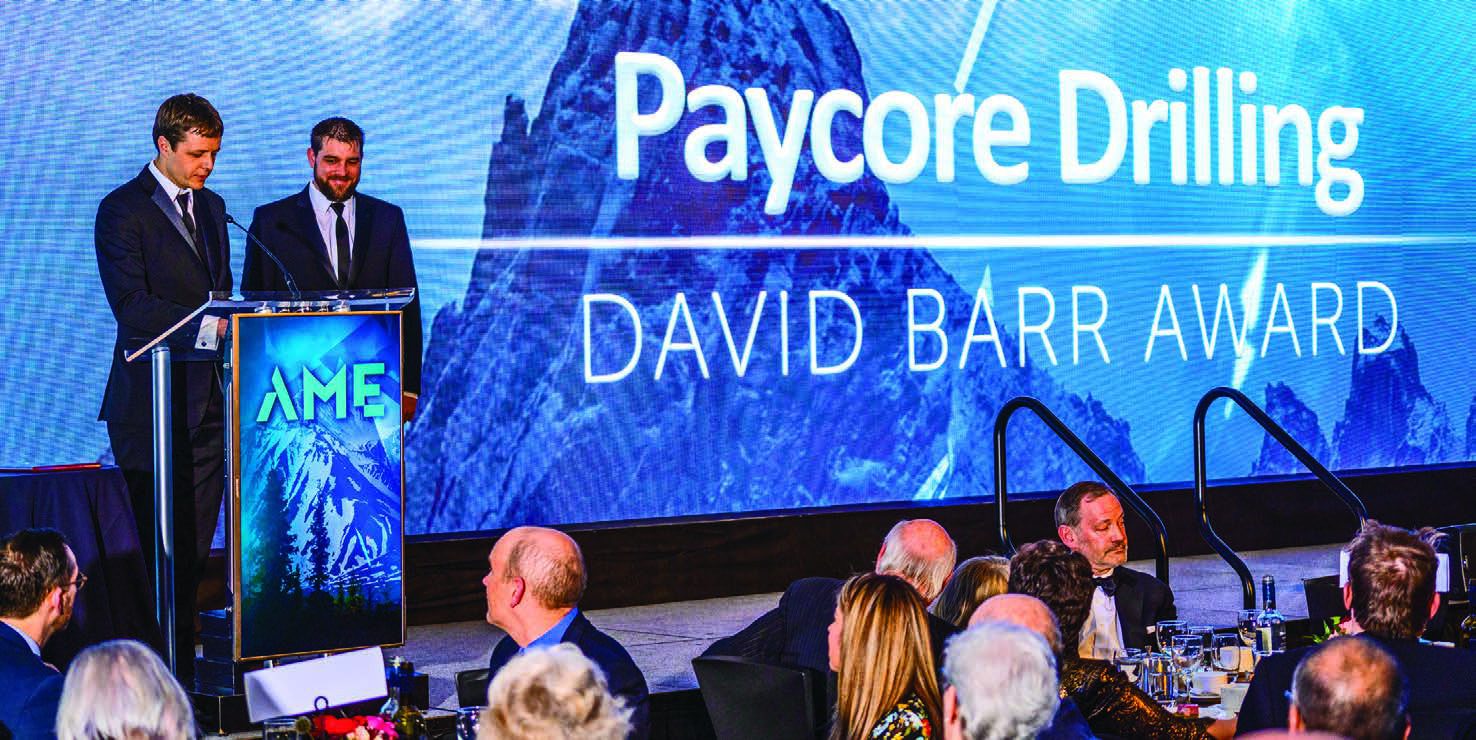
The Paycore crew on the ground immediately called in help by satellite phone. “The B.C. Ambulance Service dispatched RCMP and ambulance by road, along with a helicopter air ambulance,” Dyck says. “As the call was being placed, our workers headed to the crash site. Our on-site first aid attendant kitted up and drove the emergency transport vehicle as close as she could to the crash site.”
The helicopter had crashed in a rocky creek draw with dense brush and forest growth. “The workers used saws and axes to cut a trail to the helicopter, which was still running,” says Dyck. “They found the pilot harnessed into what was left of the helicopter. He was barely conscious and incoherent.
“With the pilot in critical condition, but out of the immediate danger… we assessed the helicopter on its side in the creek. After a couple of attempts we managed to get the engine shut down,” he says. “The air ambulance was first on site and the paramedics brought a stretcher to where the pilot was located. Our crews helped get the pilot through the bush to the waiting air ambulance.”
Dyck says the accident and subsequent rescue showed the critical importance of training. “A serious accident like this one is a reminder that they can happen at any time,” he says. “Companies should be vigilant at all times. It is easy to become complacent in the daily tasks of your job, regardless of your position or role.”
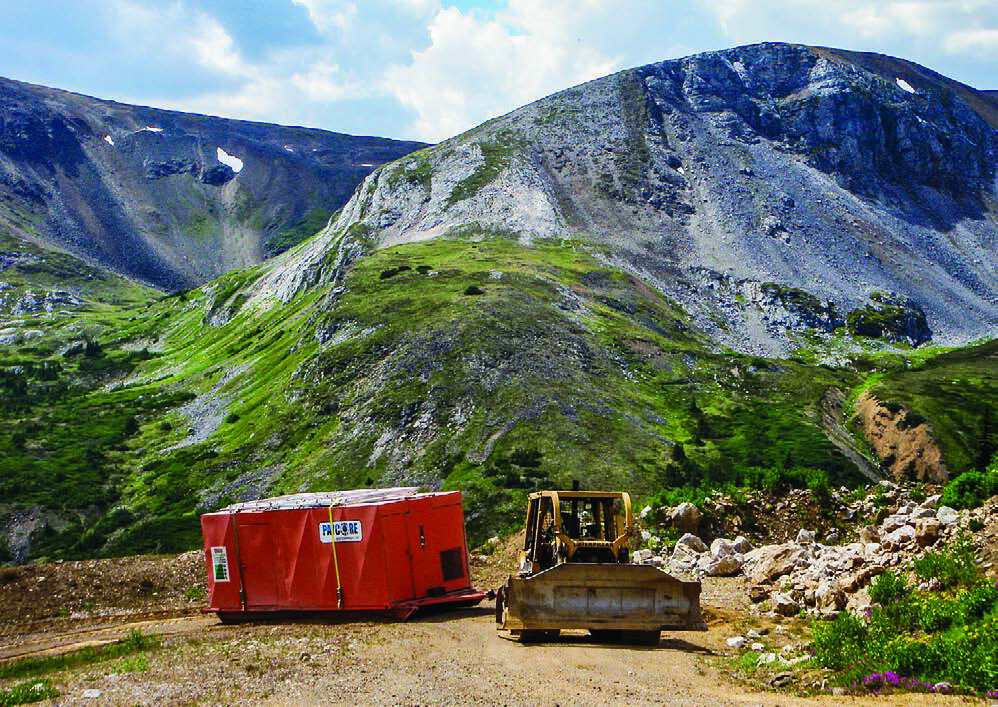
Barry Zerbin, coring manager Canada of the Major Drilling International Inc., says it was exciting for his team to be recognized for this award for the second year in a row. “We take a lot of pride in our company’s commitment to safety, right from the top to the entry-level employee.”
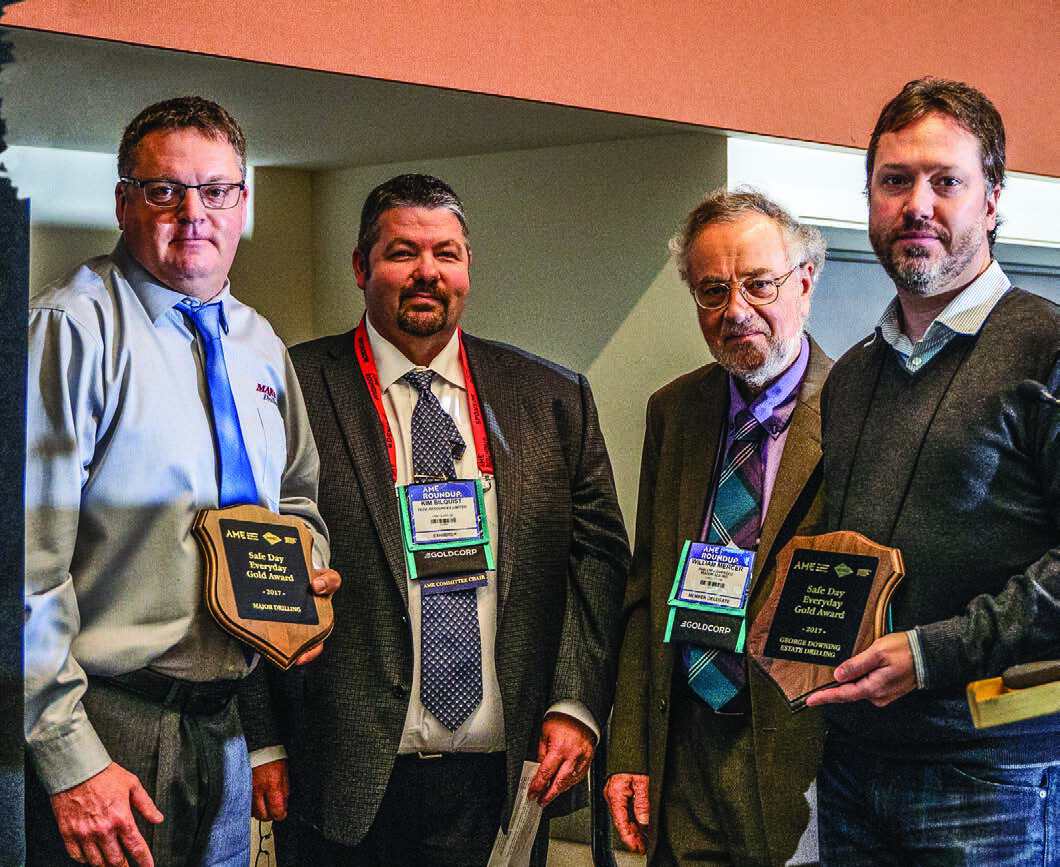
Zerbin says Major Drilling is committed to a comprehensive management system with such programs as TAKE 5. TAKE 5 is the company’s field level risk-assessment tool that identifies and controls on-site hazards before beginning a new task. It includes the following steps:
- Think through the task.
- Look for the exposure.
- Assess the risk.
- Take precautions and remove the risk.
- Do the job safely.
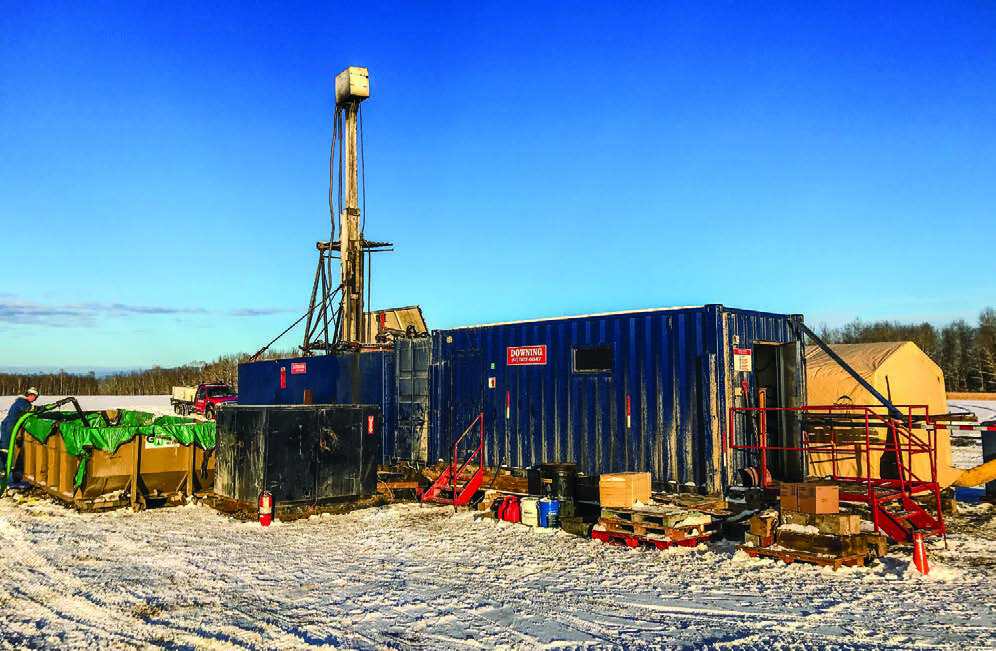
Stephen Downing, president of George Downing Estate Drilling Ltd., says his company is likewise honored to receive the award. “It is a recognition we are very proud of,” he says.
Downing says the hazards in mineral exploration are numerous and constantly changing. “Mitigating these risks involve many different controls and safety systems, but one of the most important is diligence on the part of all employees to identify and communicate potential hazards so they can be thoroughly discussed and mitigated prior to engaging in field work,” he says. Communication is key to worksite safety, Downing says.
“After years of safety meetings, both general and post-incident, one of the most common root causes identified was a lack of communication between members of the drill crew,” he says. “Never assume someone automatically knows what you’re doing or where you are.”
Jason Murdoch, health and safety coordinator and trainer with George Downing, says project planning and communication are key ingredients of workplace safety. “This is only possible because our workers feel comfortable communicating and reporting hazards,” says Murdoch. “They’re team players, not just a number or a body. They come up with solutions and make recommendations.”
AME has been honouring members with awards for safety since 1982. Until 2004, the award recognized the top performer in hours without a lost workday in B.C. and Yukon. In 2005, the award was expanded nationwide with the support of PDAC.
AME also introduced the David Barr Award, in part to recognize that safety performance measured in years without lost-time incidents is only one measure to evaluate safety. Stay safe this year!
